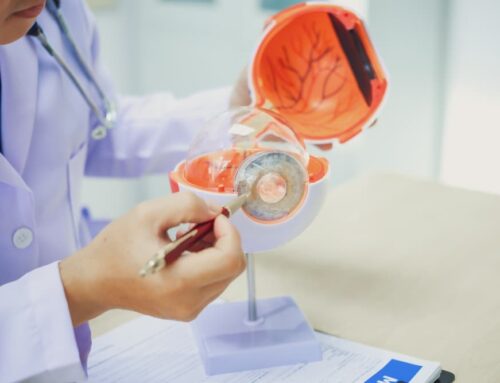Diabetic retinopathy is a significant complication of diabetes, causing damage to the blood vessels in the retina, the part of the eye responsible for capturing light and sending signals to the brain. This condition can lead to vision impairment and, in severe cases, blindness.
For many, the question arises: Is there a cure for diabetic retinopathy? While modern medicine offers effective treatments, the condition often remains irreversible once damage has occurred.
The Short Answer: Not Entirely
Unfortunately, diabetic retinopathy cannot be fully cured. The condition often causes permanent damage, especially if left untreated. Early detection of diabetic retinopathy signs, such as blurry vision, floaters, or difficulty seeing at night, is crucial for preventing progression.
The irreversible nature of the disease is tied to the delicate and complex structure of the retina. High blood sugar levels over time weaken and damage blood vessels in the retina, causing them to leak, swell, or form abnormal new vessels. These changes can lead to scarring, retinal detachment, or even blindness, making early detection through regular diabetic retinopathy exams essential.
Treatment Options for Diabetic Retinopathy
While there is no cure, several treatments can help manage the condition and slow its progression.
Diabetic Retinopathy Laser Treatment
Diabetic retinopathy laser surgery, also known as photocoagulation, is one of the most common treatments. During this procedure, a laser is used to seal leaking blood vessels and shrink abnormal ones. This method prevents further damage and stabilizes vision. While it is highly effective at stopping progression, it does not typically restore lost vision.
Anti-VEGF Injections
Anti-VEGF injections are medications that inhibit vascular endothelial growth factor, a protein that promotes the growth of abnormal blood vessels. These injections reduce swelling, improve retinal health, and help preserve vision for those with advanced diabetic retinopathy.
Surgery (Vitrectomy)
In severe cases, a vitrectomy may be recommended. This surgical procedure removes the vitreous gel inside the eye, along with any blood and scar tissue, to address complications like retinal detachment or persistent bleeding. While effective, it is generally reserved for advanced stages of the disease.

Can Diabetic Retinopathy Be Prevented?
Prevention remains the most powerful tool against diabetic retinopathy. By addressing key risk factors, individuals with diabetes can significantly reduce their chances of developing the condition.
Strict Blood Sugar Control
Maintaining stable blood sugar levels helps protect the retina from damage. This requires a combination of healthy eating, regular exercise, and adherence to prescribed medications or insulin therapy.
Regular Diabetic Retinopathy Exams
Scheduling annual diabetic retinopathy exams is crucial for early detection and timely intervention. These exams allow eye specialists to identify retinal changes before symptoms become noticeable.
Managing High Blood Pressure and Cholesterol
High blood pressure and cholesterol are known to exacerbate diabetic complications. Keeping these factors in check through lifestyle changes and medications can significantly lower the risk of developing diabetic retinopathy.
Living with Diabetic Retinopathy
For those diagnosed with diabetic retinopathy, adapting to vision changes and maintaining quality of life is vital.
Coping Strategies for Vision Loss
Simple adjustments, like organizing living spaces for easier navigation or using high-contrast colors, can make daily tasks more manageable. Occupational therapy can offer additional strategies tailored to individual needs.
Assistive Devices
Assistive technologies such as magnifiers, screen readers, and text-to-speech tools empower individuals to maintain their independence. Many devices are now widely accessible and easy to use.
Support Groups
Joining a support group provides emotional and practical support. Sharing experiences with others facing similar challenges can foster resilience and offer valuable tips for living with vision loss.
Improve Your Eye Health
While diabetic retinopathy cannot be entirely cured, proactive management and timely treatment can significantly improve outcomes. Options like diabetic retinopathy laser treatment, anti-VEGF injections, and surgery help stabilize the condition and preserve vision. Regular diabetic retinopathy exams and early recognition of diabetic retinopathy signs are key to preventing severe complications.
Eye Care Professionals is proud to be one of the longest-serving medical practices in Reno, Nevada. Contact us today and keep your eyesight healthy.











